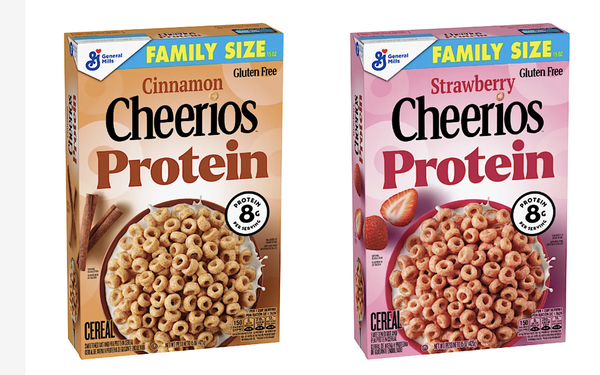
General Mills is the latest
company to feel consumers trading down
Food inflation is reshaping how Americans eat — and where they shop. A new Intuit Credit Karma study shows widespread tradedown
behavior, skipped meals, and increased reliance on dollar stores, putting pressure on food giants like General Mills and opening the door for retailers like Dollar General to expand their reach.
Conducted by Qualtrics, the study surveyed 2,000 U.S. adults and found that 77% of respondents feel the most financial pressure at the grocery store, more than any other household expense. Among
the most troubling shifts:
- 25% of Americans say they occasionally skip meals to save money
- 1 in 5 buy unhealthy food because it’s cheaper
- 32% of Gen Z
respondents say they skip meals
- 50% of respondents fall into “food limbo,” earning too much to qualify for SNAP but not enough to afford consistent nutrition
advertisement
advertisement
The
economic strain is pushing shoppers toward private-label goods (56%), dollar stores (35%), and price-focused retailers (22%). Many are also making painful trade-offs:
- 26% are taking on
debt to pay for essentials
- 24% are depleting savings
- 17% are skipping medical care
That shift continues to pummel legacy food brands. General Mills recently
forecast a full-year sales decline, and companies like Campbell’s, Conagra, and Kraft Heinz continue to report weaker performance, especially in snacks, where price sensitivity leads to lower
volumes and more frequent switching.
On the flip side, Dollar General is seeing growth. The Goodlettsville, Tennessee-based chain just passed $40 billion in annual sales for the first time and
announced plans to open 575 new stores in 2025. CEO Todd Vasos says the company's customers are being forced to “sacrifice even on the necessities,” with many reporting worsening financial
conditions.
“We are not anticipating an improvement in the macro environment, particularly for our core customer,” Vasos said on the company’s recent Q4 earnings call.
Dollar General is also positioning itself more directly in the value-driven grocery space. It recently expanded its partnership with DoorDash, integrating SNAP/EBT payment options at 16,000
locations — a move that brings DoorDash’s total number of SNAP-enabled partner stores to more than 35,000.
Meanwhile, inflation isn’t likely to let up in the near term. While
the Consumer Price Index shows signs of slowing, food categories like eggs, beef, and sweets continue to rise faster than average. FMI, the Food Industry Association, now projects food inflation to
hit 3.3% for the year.
For CPG marketers, the challenge is now twofold: holding onto brand equity in a value-obsessed environment and finding new ways to stay relevant with price-conscious,
digitally resourceful shoppers.